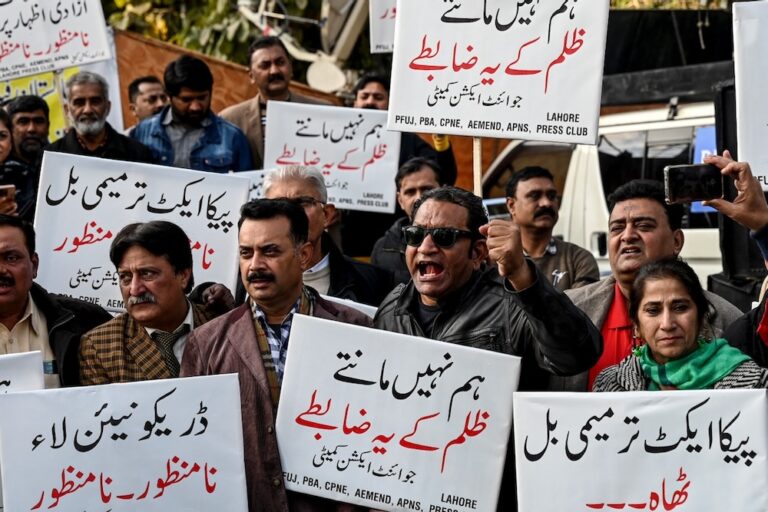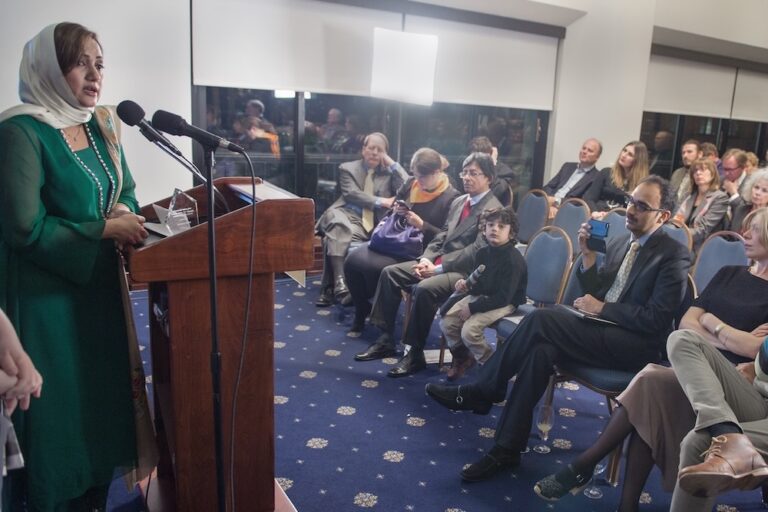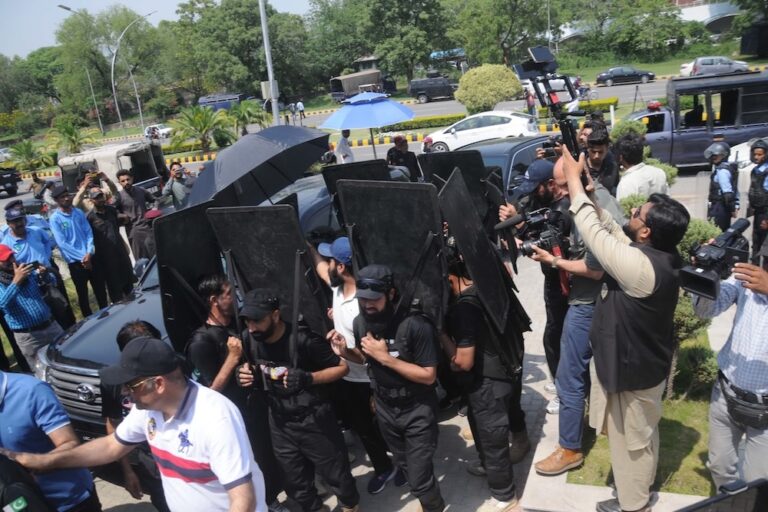(RSF/IFEX) – In a letter sent to Pakistani Interior Minister Moin-ud-Din Haider, RSF expressed its profound concern after the bomb blast in the offices of a press group in Karachi. The press freedom organisation asked the minister to “intervene personally to ensure that an inquiry is launched to identify the people behind this bombing that […]
(RSF/IFEX) – In a letter sent to Pakistani Interior Minister Moin-ud-Din Haider, RSF expressed its profound concern after the bomb blast in the offices of a press group in Karachi. The press freedom organisation asked the minister to “intervene personally to ensure that an inquiry is launched to identify the people behind this bombing that has left three people dead, one of them a manager of the group”. “This new attack against a press organ in Karachi, six months after the criminal burning of the ‘Business Recorder’, represents a deterioration of security conditions for journalists there,” stated RSF Secretary-General Robert Ménard.
According to information collected by RSF, on 6 November 2000, a bomb exploded in the advertising office of the press group which publishes the dailies “Nation” in English and “Nawa-i-Waqt” in Urdu, in Karachi. A woman allegedly entered the advertising manager’s office a few minutes before the blast that led to the death of at least three people, including this unknown woman and the staff manager, Najmul Hasan Zaidi. “Nation” and “Nawa-i-Waqt” are known to be very conservative publications that support views of fundamentalist movements and the party of former Prime Minister Nawaz Sharif, who has been jailed since the 12 October 1999 coup. Recently, “Nation” published articles about corruption cases inside the army. Nobody claimed responsibility for the bombing but according to Agence France-Presse, the editor of “Nation”, Arif Nizami, accused the Mutthahida Qaumi Movement, a party that defends the interests of Pakistanis who arrived from India after partition in 1947.


